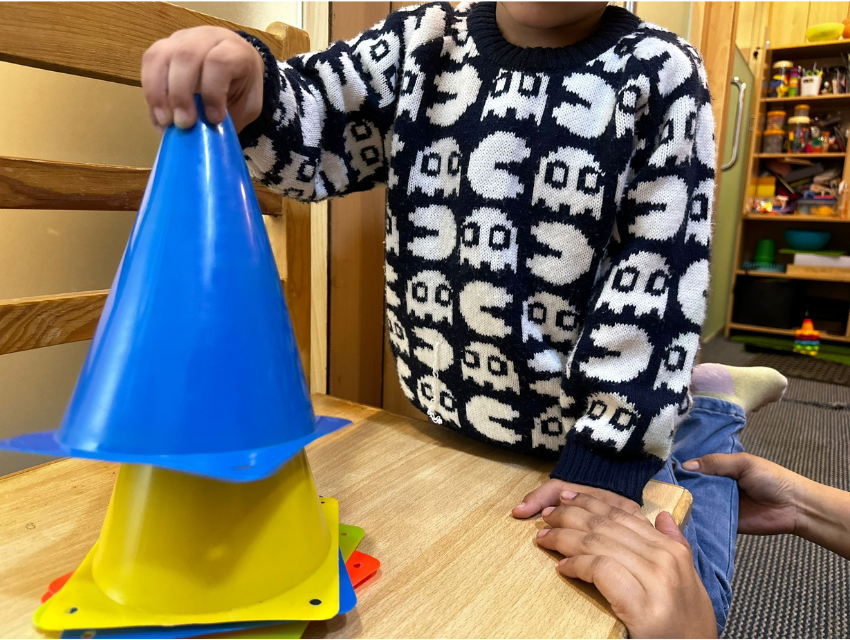Group Details
Social skills group

Social skills group
A social skills group for children with delayed speech and language skills is designed to help them build and improve their ability to engage with others, navigate social situations, and use language effectively in communication. The group focuses on addressing both verbal and non-verbal communication needs, with a strong emphasis on improving social interaction skills in a safe and structured environment.
Goals Targeted in the Social Skills Group:
Building Communication Skills:
Verbal Communication: Toddlers with delayed speech often struggle with initiating and maintaining conversations. The group works on expanding basic speech and language skills through structured activities, such as asking and answering questions, making requests, and responding to social cues.
Non-Verbal
Communication: Non-verbal cues such as facial expressions, body language, and eye contact are crucial for social interaction. Activities focus on helping children understand and use these cues to engage with others, which can be challenging for autistic children.
Turn-Taking and Sharing:
Turn-taking is a foundational social skill. Through group games, role-play, and structured playtime, children practice taking turns with toys or activities, learning patience and self-regulation in the process. Sharing and waiting for their turn also teach essential self-control and cooperation, which helps children form positive relationships with peers.Understanding and Using Social Rules:
Toddlers are taught the unspoken “rules” of social interaction, such as greetings (e.g., saying “hi” or “bye”), acknowledging others’ needs, and responding appropriately to requests or comments. These rules are often unfamiliar to autistic children, and explicit teaching helps children understand how to navigate social environments.Improving Emotional Recognition and Expression:
Recognizing and expressing emotions is another key area of focus. Children work on identifying emotions in themselves and others, such as happy, sad, angry, or excited, through pictures, stories, and role-playing. The ability to express emotions in socially appropriate ways is crucial for building social relationships.Enhancing Play Skills:
For many autistic children, engaging in interactive play with peers can be a challenge. The group facilitates structured, supervised play activities where children are encouraged to play with others, whether it’s playing with toys together, taking part in group games, or engaging in cooperative activities. Through these activities, children also learn to follow simple group rules, which can help them interact with peers in a more positive and organized way.Generalizing Skills to Different Settings:
One of the most important goals of a social skills group is to ensure that the communication and social skills learned in the group setting can be generalized to other environments, like home, school, or community settings. Strategies are put in place to help children recognize when and how to use their social skills outside of the group context.
Art Classes
Language Skills Enrichment Program (All Inclusive Summer Camp)
"Join our Language Skills Enrichment Program at Adventure Quest Summer Camp for a fun-filled summer of language development and social activities."

Course Title
Lorem ipsum, or lipsum as it is sometimes known, is dummy text used in laying out print, graphic or web designs.

Course Title
Lorem ipsum, or lipsum as it is sometimes known, is dummy text used in laying out print, graphic or web designs.

Course Title
Lorem ipsum, or lipsum as it is sometimes known, is dummy text used in laying out print, graphic or web designs.
